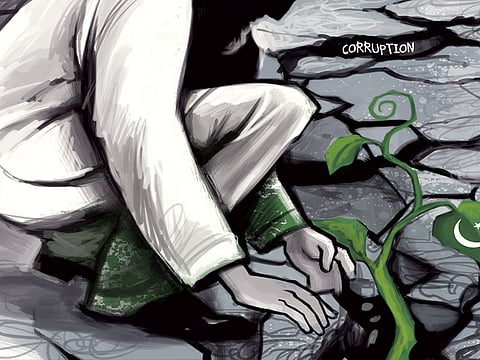All is not lost in Pakistan
Mustaqbil Pakistan is one of the many NGOs set up by selfless Pakistanis who have taken it upon themselves to contribute to some from of stability and productivity within their society

With all the seemingly bad news emanating from Pakistan, a reader would not be faulted into imagining a scenario of doom for that country. Beleaguered as it has been since its involvement in the conflict following the Soviet invasion of Afghanistan, the country has faced internal strife of great proportions that threatened to dismantle Pakistan.
It has, however, withstood great challenges and while not on pace with other countries, it still manages to plod on. From a low in 2009, Pakistan has shown a modest yet progressive increase in GNP for the past six years. Part of the reason could be attributed to selfless Pakistanis who have taken it upon themselves and formed NGOs which contribute to some from of stability and productivity within their society.
One such NGO that has been making steady inroads at the grassroots level is Mustaqbil Pakistan. The organisation was formed in 2010 as a new political party whose primary objective was to bring about a fundamental change in the way politics is conducted in Pakistan.
Speaking at its launch, the party chairman Nadeem Mumtaz Qureshi minced no words saying, “We are living through what is possibly one of the most dangerous periods in our history. Our very existence as a sovereign state is threatened. At a time like this it is imperative that all of us who have something positive to offer come together as one in defence of our homeland. And you, as leaders and moulders of public opinion, have a vital role to play.”
Qureshi then lamented the deteriorating conditions at the time. Insurgency and military conflict in two of the country’s provinces, killings and abductions of civilians in many cities, unemployment, hopelessness, desperation, suicides and a shocking absence of the writ of government. He was then very direct as to the root of the problem.
“In Pakistan, the worst, most incompetent, most corrupt, most morally bankrupt, and most insincere of our people compete in our political arena. These people — in some sense the scum of our society — are elected to our parliament and shape our destiny. Why then should anyone of us be surprised that Pakistan is slowly crumbling? And, let’s be clear, if this ‘scum’ continues to come back in power time and again — as it has done during the democratic phases of our history — then Pakistan will not survive.”
The party’s aim has been to bring decent, competent, sincere and honest Pakistanis into politics. This segment of the population was previously unwilling or unable to participate in politics. Their absence had created a political vacuum which according to Qureshi had been happily filled by the ‘scum’, the reason was given for the sorry state the country was in then.
Qureshi’s first thrust was to reach out to the media for support. To convince Pakistanis that they had it in their power to change their destiny, he challenged the media to tell it like it was.
“I am writing to you — eminent editors and producers in the print and broadcast media — to tell you that you have a crucial role to play. What you are doing today is not enough. The media broadcasts hours and hours of output featuring the ‘usual culprits’: our corrupt and incompetent politicians. Your smug anchors find gratification in having these already challenged people utter inanities and spew venom on their equally inane rivals. And what service do you render the people of Pakistan in broadcasting these programmes hour after hour, evening after evening, day after day? Have you enlightened them? Have you informed them? Have you given them hope?”
Challenging the media to be more forthright, Qureshi continued, “Ladies and gentlemen you have to rise above all of this. Time is running out for Pakistan. Too much is at stake. You cannot continue to behave like this. There are people, here, today, now, working to change things. You need to identify them and then present them to your readers and viewers. You need to show Pakistanis that there is hope. And that there are still people who, sometimes at the risk of their safety, are working day and night to make Pakistan’s future brighter than its past. There are many, many, good, decent, sincere and competent Pakistanis working to bring change. They also deserve a chance to be heard. And you should let their ideas and agenda be heard.”
Realising that to fight corruption in politics, one must first clean house from inside, the party since its inception has been working tirelessly and without any government support in introducing new faces in the country’s Provincial and National Assembly. They have been spreading their message in towns and villages and lending support wherever possible to make lives better.
At the time the party was formed, Qureshi had exhorted, “Rome is burning. You can continue to fiddle. Or you can pick up a bucket and join those of us who want to do more.”
It seems many Pakistanis have picked up on his message to set their country’s path to recovery.
— Tariq A. Al Maeena is a Saudi socio-political commentator. He lives in Jeddah, Saudi Arabia. You can follow him on Twitter at www.twitter.com/@talmaeena



